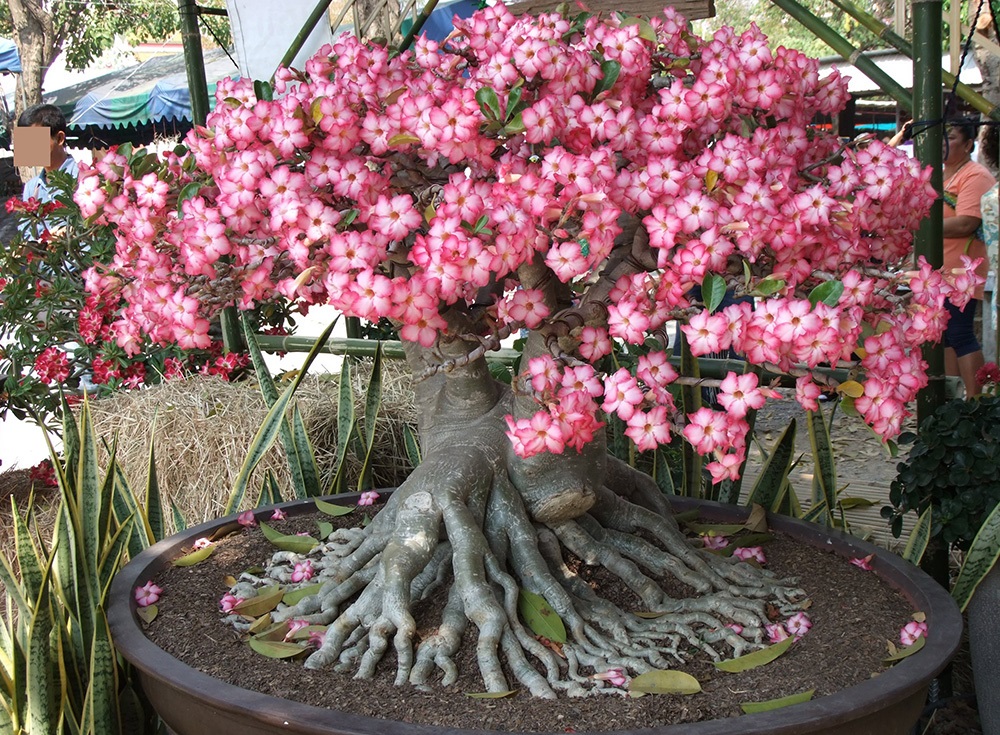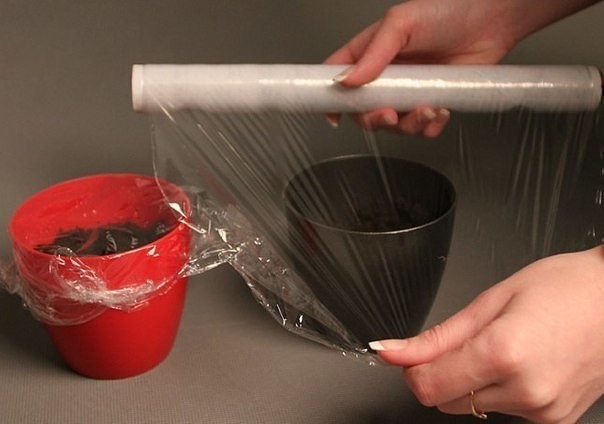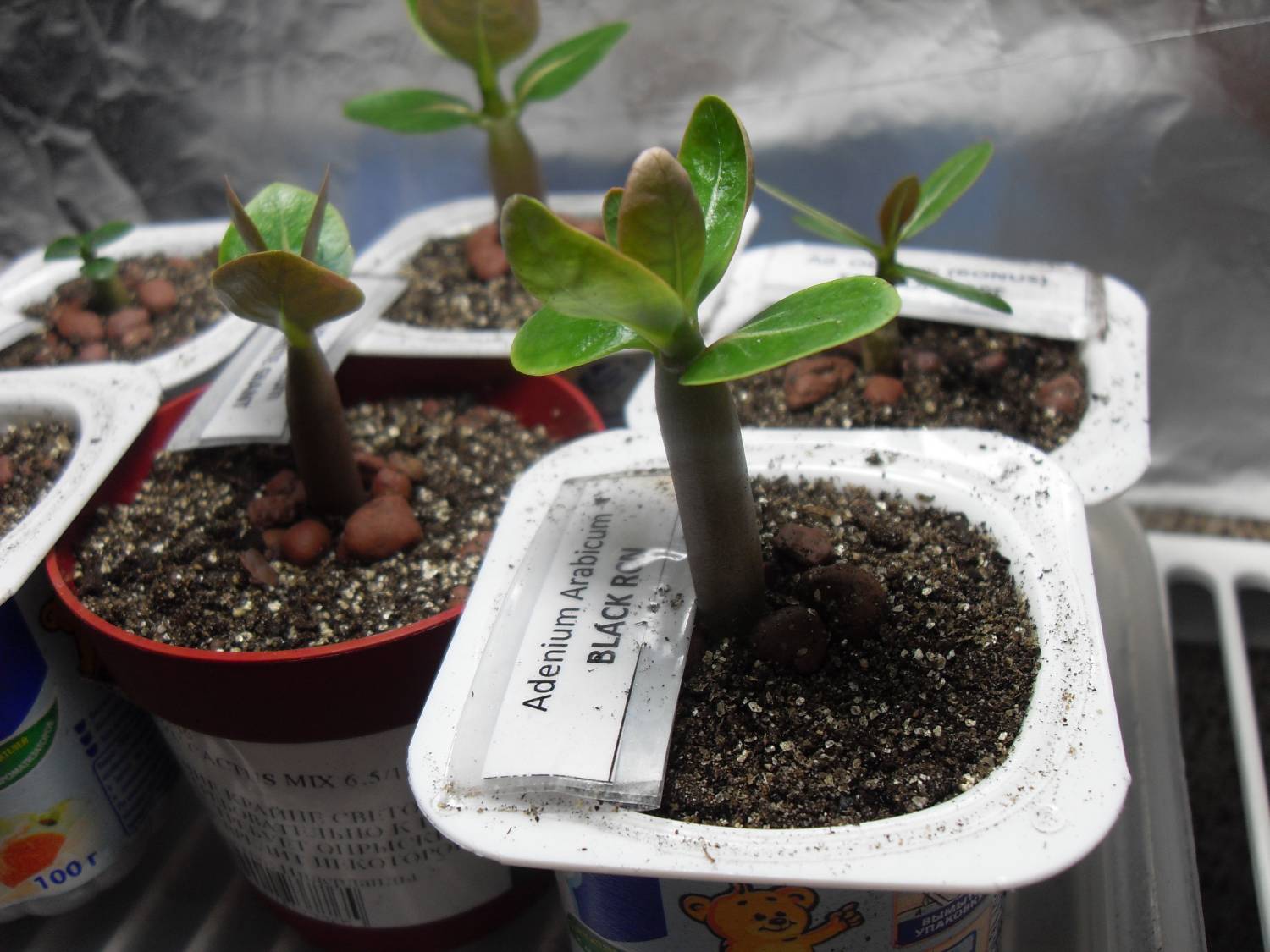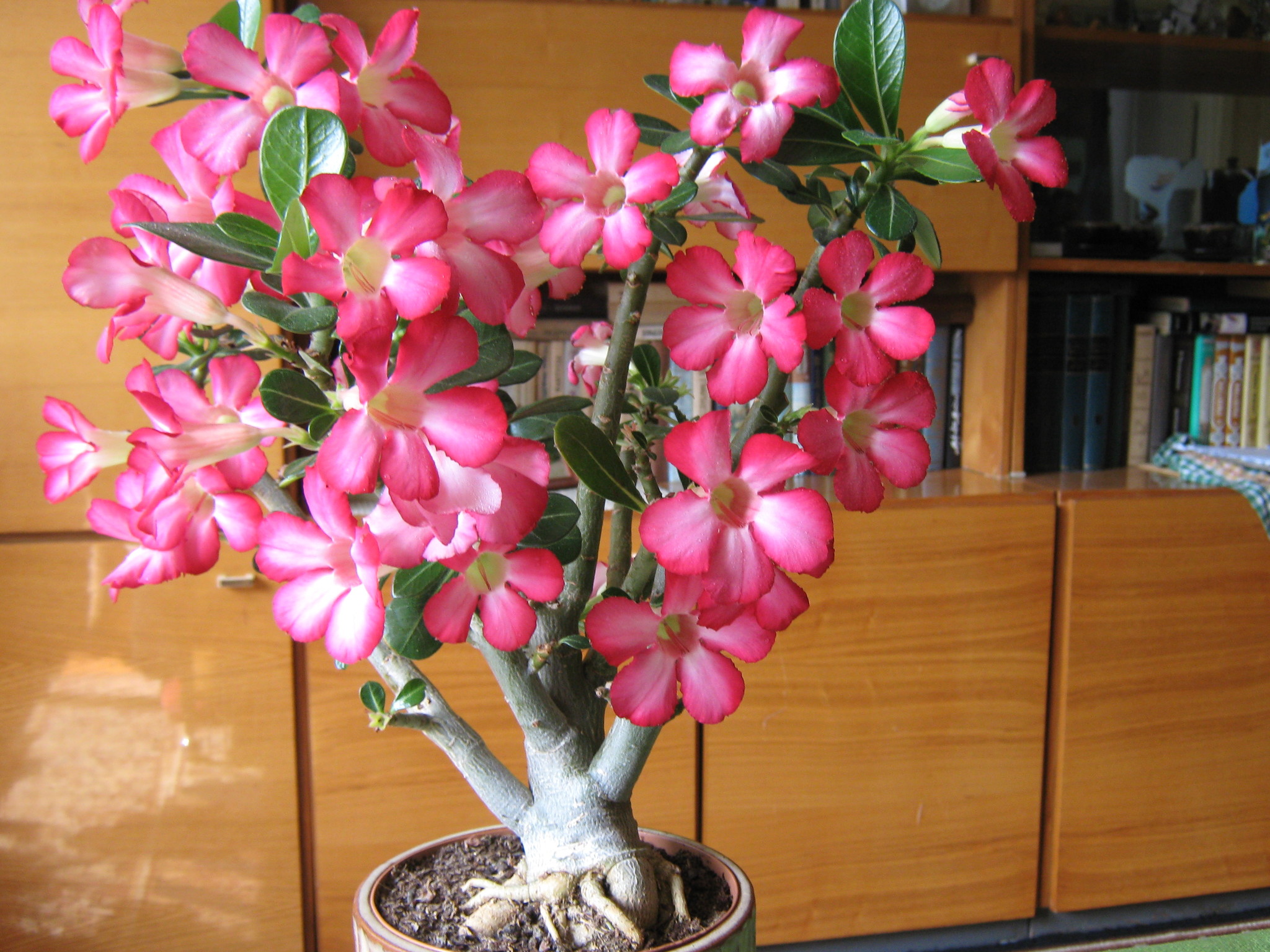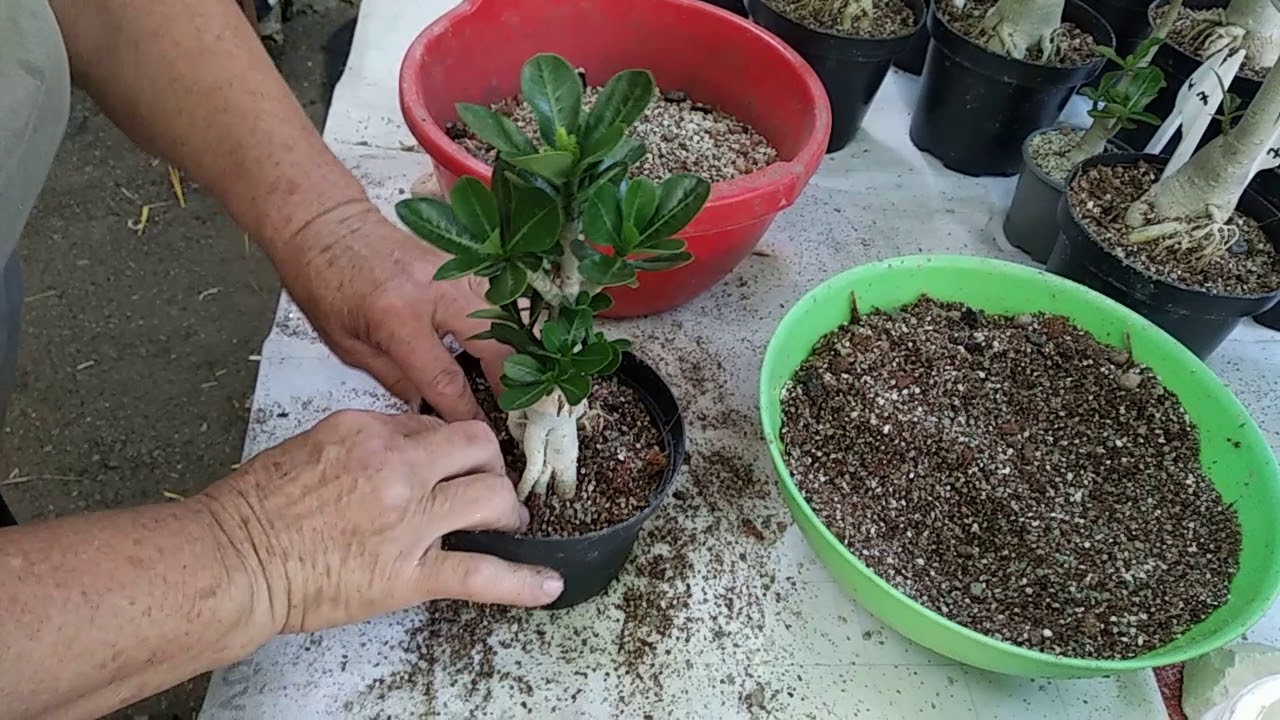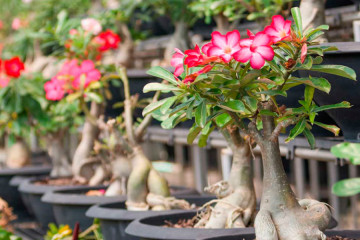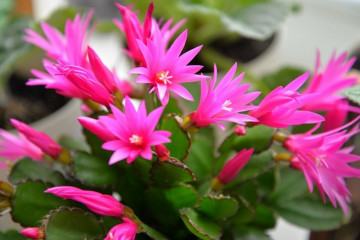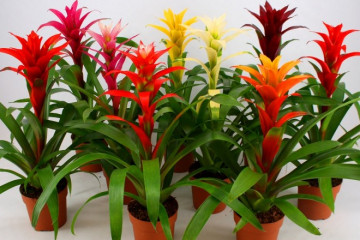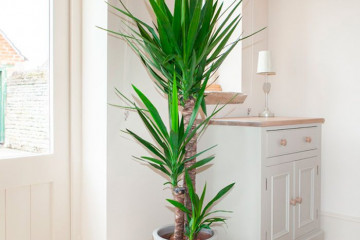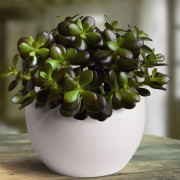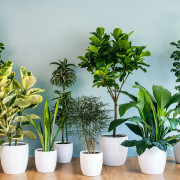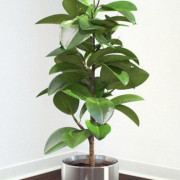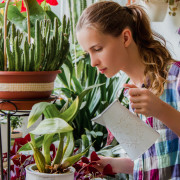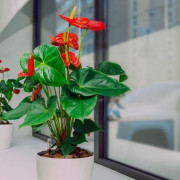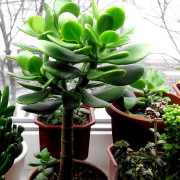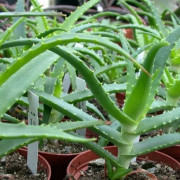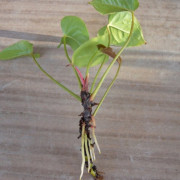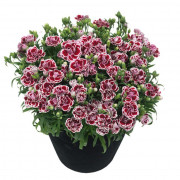Adenium home care: rules for pruning and transplanting a plant
Content:
Not every amateur florist can imagine how unusual a cactus can look. Associated with something boring and prickly, this type of flowers has gained popularity only among computer enthusiasts. Only one kind of adenium is able to turn the usual idea of cacti.
Types of cactus adenium
The adenium flower was first discovered in Africa, after which it was actively cultivated on all continents. To attribute it correctly to shrub plants, in its natural habitat, it is able to grow up to several meters.
Adenium obese
This type of plant is the leader among its fellows. The choice of gardeners is due to the fact that obese adeniums are the most unpretentious of all to care for. Their appearance has nothing to do with the usual ideas about plants: the stem is very thick at the base, but rather thin near the top.
The foliage is juicy green with a glossy surface. The shape of the leaf resembles a drop - at the cutting it is narrow, closer to the edge it is wider, the end is often rounded.
Adenium obesum
Adenium obesum translates as "fat", "fat". This is the most popular type of flower grown in apartment greenhouses. Mistakenly, many novice growers take it as a separate species of this family. It blooms in early spring, most often the petals are pink-white.
In their natural habitat, the buds are smooth, but some selected specimens may have double flowers.
Adenium frol curly
Curly Frol differs from obesum in incredibly beautiful flowering. The buds have multi-tiered petals that resemble a rose, sometimes even a peony. The trunk and leaves are similar to obese adenium: they are significantly thickened at the base. Many see the resemblance of an adult cactus to a miniature copy of the baobab.
Adenium white
This variety is chosen by those who love exclusively white flowers. Adenium white got its name from the snow-white flowering, striking in its beauty.
Terry adenium
This variety is distinguished by a large number of petals per bud, which makes it especially bright and juicy. Terry bells are larger than the fat buds and reach 8 centimeters in diameter.
Adenium crispum
The original cultivar differs from the previous ones both in the structure of the stem and in flowers. Foliage also has its own characteristics in appearance - thin white veins adorn each leaf, which is much narrower and longer than other representatives of this genus. The trunk (caudex) can be visually divided into two parts: underground, looking out to the surface, and aboveground.
The underground part resembles a large root crop, because it has a rounded shape. From the round part, long thin trunks are pulled out, on which leaves and amazing buds are already located. The bloom of crispum will not leave anyone indifferent - the pink petals have a unique bend, the flowers themselves are wide open.
Reproduction methods of adenium
Propagating adenium at home is easy. The procedure does not require special skills. Shoots can be cut and propagated by cuttings, or new plants can be germinated from seeds.
Germinating seeds
Growing adenium from seeds allows you to immediately get a large number of new plants. If the seed is in a certain microclimate, the first shoots will appear on the 3rd day. Necessary conditions for germination:
- the air temperature must be above + 30˚С;
- the soil should not be heavy and airtight;
- eliminate excess moisture;
- long daylight hours, more than 16 hours.
A special soil for growing adenium is chosen, marked on the packaging "for cacti", it is mixed in equal proportions with sand or charcoal. Such soil will allow the seeds to breathe and will not allow souring.
For germination, adenium seeds need high air humidity, which can be easily achieved by covering the pots with transparent polyethylene. If in the room where shoots are expected, the air temperature is below 30 ° C, additional heating will have to be used, otherwise the shoots will not appear.
After all the sprouts have hatched, the heating can be removed and be sure to put the pots so that direct rays do not fall on them. Watering young shoots occurs only when the soil around the stems is dry.
You can transplant a young plant into a permanent pot at the age of 1 month. A prerequisite for transplanting is the presence of at least two true leaves.
Propagation by cuttings
It is best to carry out such propagation by the cuttings method in summer, when it is easy to create comfortable conditions for young plants. A healthy adult plant in the active growth phase is suitable for collecting planting material. Be sure to cut the cuttings with a sharp blade so that you get an even cut, without torn edges.
For successful rooting of the plant, the length of the cutting should not be less than 10 cm. After cutting, the lower leaves are removed, but the upper leaves must be left, because they are actively involved in the formation of the root system.
For the appearance of the first roots, the shoots are planted in a small pot with light ventilated soil. The best composition for adenium is river sand and coconut fiber mixed in equal proportions.
The planted shoots must be covered with a transparent film or, depending on the size of the cutting, with a plastic cup or a cut plastic transparent bottle and placed on the windowsill so that direct sunlight does not fall on the plants. The air temperature can vary from + 25˚C to + 35˚C. If the temperature drops below 25 ° C, there will be a risk of decay of the appendages.
Home care for a cactus
It is not difficult to grow adenium in an apartment - home care does not include any impossible tasks. The most important thing is to provide the plant with diffused light for 14 hours every day. To do this, it is placed on the windowsills on the east or south side of the house.
With insufficient daylight hours, adenium flowers will not show and will significantly slow down its growth.
Pruning and shaping the crown
Adenium is pruned and crowned every spring when the exotic rose has woken up after the winter and entered the growth stage. Shoots are cut, forming a beautiful crown, at the discretion of the hostess.
Temperature and humidity
The humidity regime for adeniums requiring home care, close to natural, should be observed as follows: the higher the temperature in the room, the more humid the air should be. So, with the optimal room temperature + 22˚C - + 25˚C, the air humidity in the room should be close to 60%.
Watering
Do not overdry and especially pour the plant abundantly. It is recommended to observe the following regime:
- in the summer season, when the air temperature is high enough, you can water the plant in 1-2 days, depending on the degree of drying of the soil;
- in cloudy and cool times, you need to water the plant no more than 1 time in 5 days, limiting the volume of water so that only the upper layers of the soil are moistened.
Adenium transplant rules
If necessary, you can transplant the plant in early spring, while the plant has not yet entered the active growth phase. The change of the pot should occur with an increase in width rather than depth, which is due to the peculiarity of the development of the root system. The transplant is carried out on average once every 3 years.
If the plant looks sickly and begins to shed its foliage in the spring and summer, this may be the first sign that it is cramped in the pot. A transplant can be carried out in the summer, but only if there is still a month of time before the next cold snap, so that the plant has time to adapt in a new place and put out several new leaves.
If you put a cactus in a new pot during a dormant period (autumn or winter), this can provoke rotting or death of a healthy flower.
The Desert Rose is a beautiful, unusual flower that is easy to care for. All varieties are suitable for apartment maintenance, including Anuk and Arabicum. The choice of a variety is usually influenced by the individual preferences of the hostess in terms of color and size of flowers. The presence of an attractive cactus in the home will add a zest to the interior and will not leave anyone indifferent.
